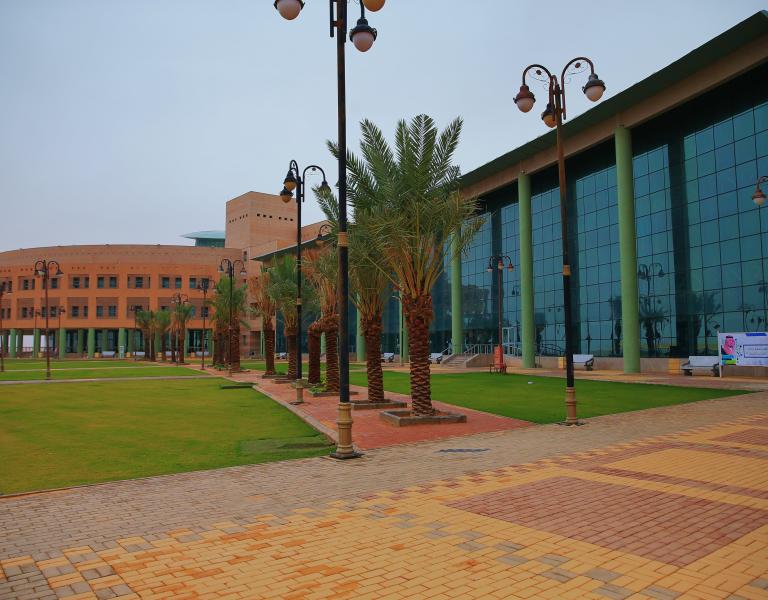The Department of Civil Engineering was established in the College of Engineering, Northern Border University, in 2007. The department provides a single program, the Civil Engineering Program, which grants a Bachelor of Science degree in Civil Engineering. The program's first batch graduated in the academic year (2012-2013) corresponding to (1433-1434 AH). ). The Accreditation Board accredited the program for Engineering and Technology (ABET) in 2018. The program was also submitted for accreditation from the National Center for Academic Accreditation and Assessment (NCAAA), and accreditation visit was in February 2023.
Civil Engineering Department Vision
We aspire to excellence in civil engineering to contribute to realizing the Kingdom's 2030 vision in education, scientific research and community service.
Program Mission
We provide outstanding engineering education and modern scientific research to graduate competent civil engineers capable of keeping pace with national developments and delivering innovative and sustainable engineering solutions that contribute to society's advancement and well-being.
Program Goals
PG1: Providing outstanding education consistent with national development needs and covering all aspects of civil engineering.
PG2: Graduating engineers with technical and professional skills required for successful careers in industry or academia.
PG3: Preparing students to be successful role models who inspire their society by instilling in them the values of authenticity, modernity, and responsibility.
PG4: Engaging in scientific research that is both innovative, sustainable, and socially responsible.
PG5: Creating an environment conducive to learning and professional development.
PG6: Contributing to the well-being and advancement of the local and national community.
Program Educational Objectives
- PEO1. Demonstrate technical proficiency in the areas of Civil Engineering.
- PEO2. Expand their knowledge and capabilities through continuing education or other lifelong learning experiences.
- PEO3. Apply technical knowledge and problem-solving skills to serve their communities.
Program Learning Outcomes:
By the time of graduation, the program's students are expected to demonstrate the following:
| ||
| ||
| ||
| ||
| ||
|
Academic year | Enrollment | Graduated |
2022/2023 | 79 | 0 |
2021/2022 | 97 | 22 |
2020/2021 | 89 | 27 |
2019/2020 | 104 | 31 |
2018/2019 | 112 | 27 |
2017/2018 | 119 | 28 |
2016/2017 | 116 | 18 |
2015/2016 | 102 | 17 |
2014/2015 | 104 | 22 |
2013/2014 | 91 | 15 |
2012/2013 | 79 | 13 |
2011/2012 | 58 | 0 |
2010/2011 | 38 | 0 |
2009/2010 | 14 | 0 |
Contact us


